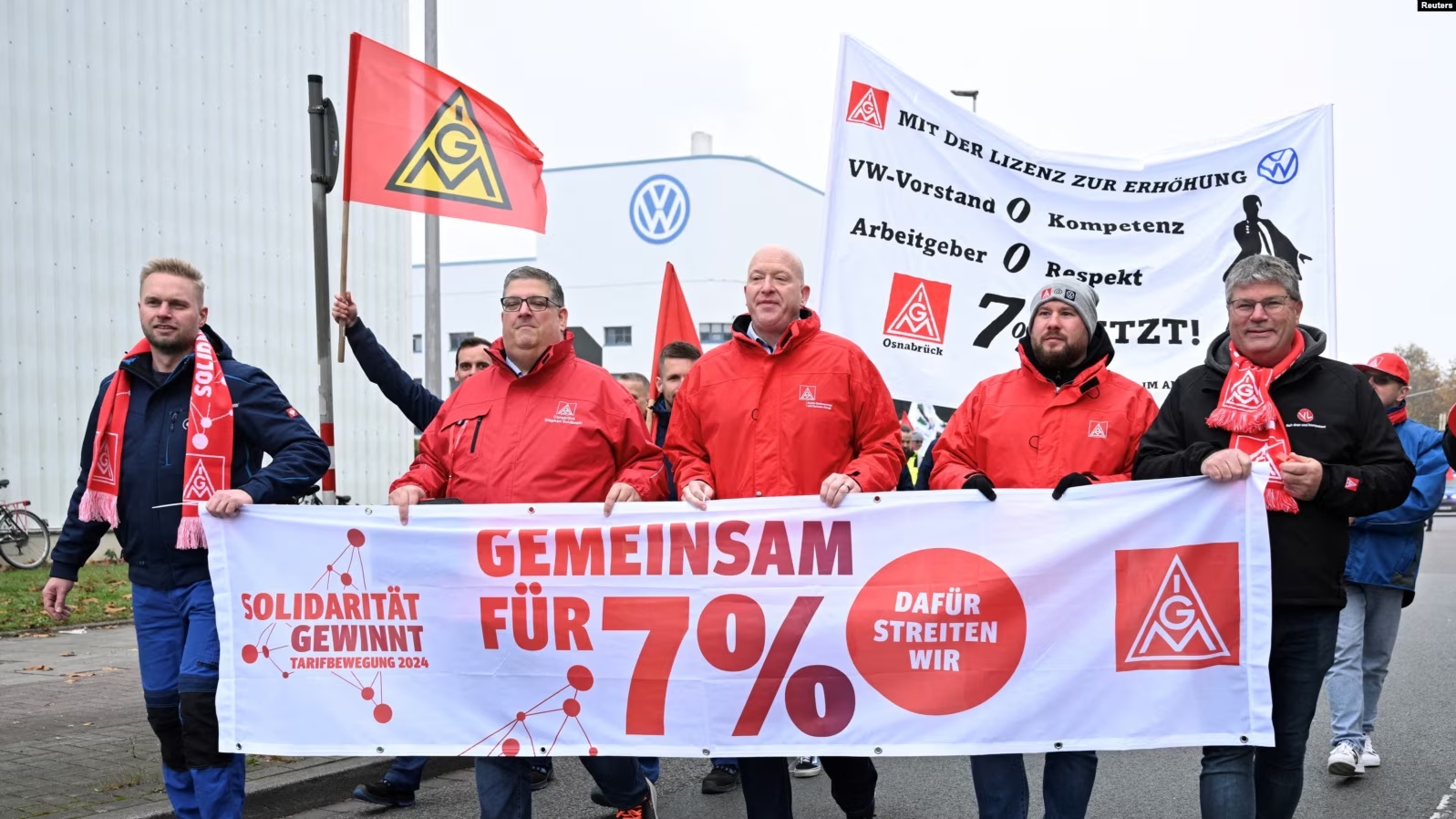
Published 03/12/2024 14:40 | Edited 12/03/2024 15:23
These are not normal times in the largest power and main guarantor of the European Union. The economic and political crisis that Germany is going through seems to have no end, after around 100,000 Volkswagen workers joined the strike announced by the union this Monday (2). Workers are protesting the company’s plans to cut wages and even close factories at Europe’s largest car manufacturer.
Volkswagen threatens to close factories in Germany for the first time in its 87-year history to reduce costs and increase profits. European automakers face weak demand, high production costs, competition from Chinese rivals and a slower-than-expected transition to electric vehicles.
“This was the first powerful impact of a winter of protests. Volkswagen must come to its senses and abandon its plans, otherwise our peers will find the right answer,” said IG Metall chief negotiator Thorsten Groeger.
The union had proposed measures to VW executives that would save up to 1.5 billion euros (R$6.34 billion), including the waiver of bonuses in 2025 and 2026 for the company’s top management. Volkswagen refused the proposal, demanding a 10% pay cut.
“If necessary, this will be the toughest collective bargaining battle Volkswagen has ever seen,” IG Metall representative Thorsten Groeger said in a statement.
Germany is going through a turbulent period in politics and economics. The largest power in Europe and guarantor of the EU, the country has seen its economy stagnant for two years and with outdated infrastructure problems.
All this in the midst of a tariff war already declared with China and a new front with the protectionist Trump administration, which is expected to overtax European products, especially the automotive sector – Germany’s export product par excellence.
In politics, Finance Minister Christian Lindner, from the Liberal Democratic Party, was fired by Chancellor Olaf Scholz, dismantling the traffic light coalition – which united the red of the Social Democrats, the yellow of the Liberal Democrats and the green.
With elections scheduled for September next year, Germany is waiting for a vote of confidence from parliament soon – which could bring the elections forward to February 2025.
Source: vermelho.org.br

